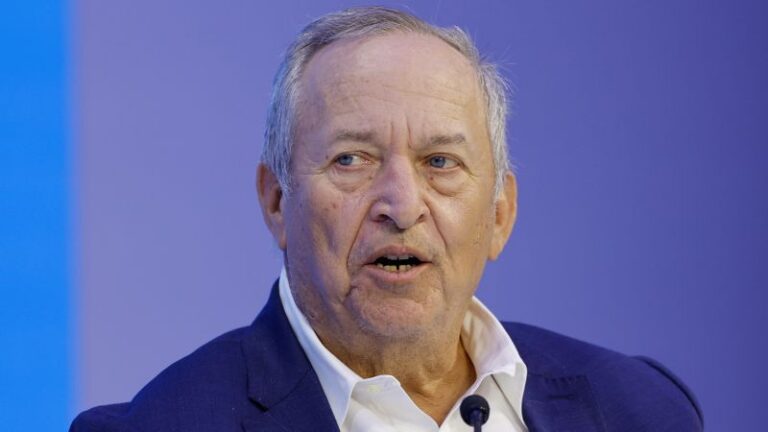
[ad_1]
Minneapolis
CNN
—
The US economy may still be running fast and strong, but its risk of suddenly falling into a recession still looms large, despite the Federal Reserve’s efforts, former Treasury Secretary Larry Summers warned Monday.
Summers told CNN’s Poppy Harlow in an interview that he expects the Fed will have to raise its benchmark interest rate higher than expected and that central bank’s “push and push” to combat inflation will soon trigger a downturn.
“The process of bringing down inflation will bring on a recession at some stage, as it almost always has in the past,” Summers said.
And for the US economy, it could likely mean a “Wile E. Coyote moment,” Summers said, referencing the cartoon canine’s relentless — yet futile — pursuit of the speedy Roadrunner off a cliff and into mid-air.
Gravity eventually could win out.
“The economy could hit an air pocket in a few months,” he said.
For the past year, the Fed has enacted a series of interest rate hikes aimed at chilling demand and cooling down historically high inflation. In recent months, as the pace of price increases has moderated, the central bank has eased off the gas pedal.
In February, the Fed’s policymaking committee approved a quarter-point interest rate hike — its smallest increase in several months.
But in the weeks following that meeting, there was a barrage of surprisingly strong economic data, showing blockbuster job gains, hearty consumer spending and unyielding inflation.
“I don’t think there’s any question that we do not yet have inflation on a secure glide path anywhere near down to the 2% [Fed target] level,” Summers said. “And until the Fed can be confident of that, it’s going to have to be tightening rather than easing.”
Some Fed members agree.
Federal Reserve Chairman Jerome Powell has cautioned that bringing down inflation will take a “significant period of time,” while other Fed leaders have indicated they’re open to larger interest rate hikes.
As of Monday, markets are expecting the Fed to make another quarter-point raise: The CME FedWatch Tool is showing a 69.4% probability of such a hike; however, the perceived chances of a half-point increase (at 30.6%) have grown considerably during the past few weeks. One month ago, the probability for a half-point increase was 3.3%, according to the CME FedWatch Tool.
Summers said his best guess would be for the fed funds rate to grow from its current range (4.5% to 4.75%) to 5.5%, but noted he “wouldn’t be amazed” if it were to hit 6%, given the uncertainties in the economy.
“Hope for the best but plan for the worst, I think is the right advice,” Summers said.
[ad_2]